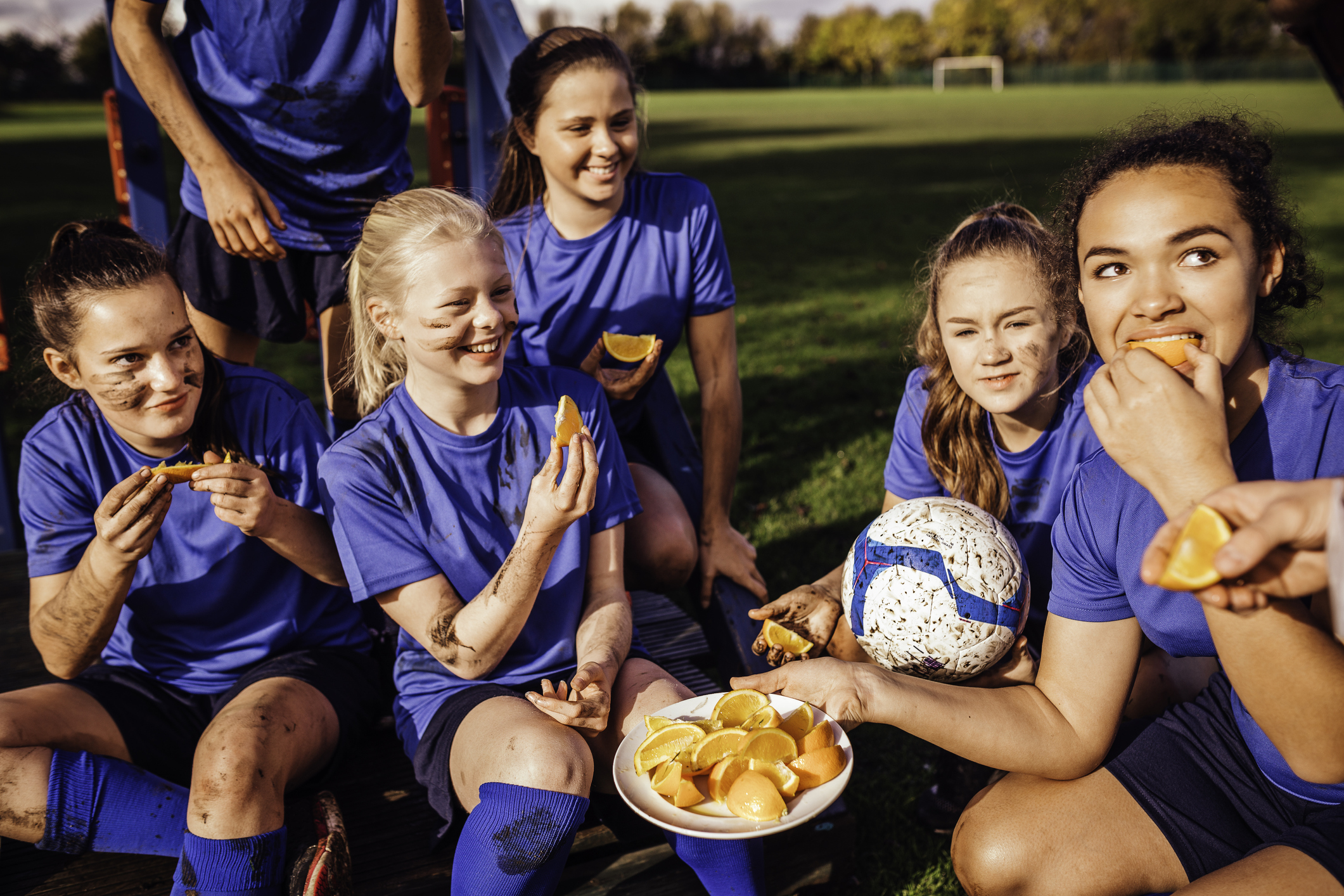
Today’s the day – are you ready to win or lose? The best strategy off the field plays into how you perform on the field. What you eat before and after your game can have a major effect on how you perform, and the right foods will give you the right fuel to provide enough energy game day. With this in mind, we have put together our game day nutrition general list of some foods to consider before, during, and after a game.
Why should I eat before a game/workout and what should I eat?
Many people who eat a nutrient-dense diet that meets their energy needs don’t need extra fuel to exercise at moderate intensity for 60 minutes or less. Because a game usually lasts longer than an hour of strenuous activity, it is recommended that you eat some type of snack or meal before your game.
Right Timing – Before the Game
Aim to have a snack or a small meal 1 to 3 hours before your game. This will give your body enough time to digest any foods before the game. You can have tummy troubles or GI discomfort if you chow down right before. That’s because more blood goes to your muscles during exercise, leaving less for digestion. These competing demands can become a challenge for optimal performance.
Carbohydrates provide the primary fuel for exercising muscles. Athletes should focus on eating carbs, which are broken down in the small intestine. A pre-workout snack that’s a mix of carbs, protein and healthy fats can give you the energy you need to push yourself harder.
Here are a few ideas of what to eat before:
• Oatmeal with berries
• Balanced energy bar
• A banana, an apple or other fresh fruit
• Yogurt
• A fruit smoothie
• A whole-grain bagel or crackers
• Granola bar
• A peanut butter and apple sandwich
Should I eat during a game/workout and what should I eat?
As mentioned before, having foods during exercise may result in stomach cramps. Hydration is key during this time. Although there are certain foods that provide energy-boosting hydration as well. Hydrate based on length and intensity of the activity. Replace fluids according to thirst and weather.
• Drink 16-32 oz. of water per hour for workouts longer than 1 hour
• Sports drinks – for activity longer than 1 hour
• Watermelon and orange slices are good for halftime
Why should I eat after a game/workout and what should I eat?
The most important meal on game day is what you eat after your game or workout. During heavy exercise, your body taps into your glycogen storage for energy, which is the fuel stored in your muscles. After you’ve given it your all to win the game, your muscles have been depleted of their glycogen and broken down. The smartest thing to do after a game is eat/drink something with protein and carbohydrates around 30 minutes after the game. This will ensure that your energy stores are refilled, your muscles that were broken down are given nourishment to rebuild and repair, and will keep your metabolism at a steady pace.
Research shows that the body’s ability to refill muscle stores decreases by 50 percent if you wait to eat just two hours after your workout. The sooner you refuel, the better!
Here are a few great snack ideas and meal options for you to refuel after your game/workout you’ll be interested to try out:
• Turkey on whole-grain bread with vegetables
• Protein shake made with half a banana, one scoop of protein powder, almond milk, and hemp seeds
• Grilled salmon with a baked sweet potato
• Omelet stuffed with sautéed vegetables and avocado
• Grilled chicken with sautéed or steamed vegetables
• Salad with roasted chickpeas light olive oil, and vinegar (Vegan)
• Sautéed or steamed vegetables, with non-GMO tofu (Vegan)
• Quinoa bowl with blackberries and pecans (Vegan)
• Burrito with beans, brown rice, guacamole, and salsa (Vegan)
Electrolytes
Electrolytes are essential minerals that your body needs to stay hydrated before, during, and after exercise. But they do more than that. Electrolytes also support our body’s vital functions, such as muscle contraction (including the heart), blood pressure, nerve signaling, and much more. They help your body retain fluid during heavy exercise when you’re sweating, so they can also keep joints lubricated and maintain your energy, avoiding dehydration related fatigue. Adding an electrolyte supplement to your drink throughout the day will keep you in check. Adding lemon and a bit of sea salt to your drink will do the trick as well!
It’s important to listen to your body. When it comes to eating and exercise, everyone is different. Pay attention to how you feel throughout the day and what your body is asking from you. Experience an injury after the game? We can help you with that! Contact us today.
Written by Vanessa Delgado
